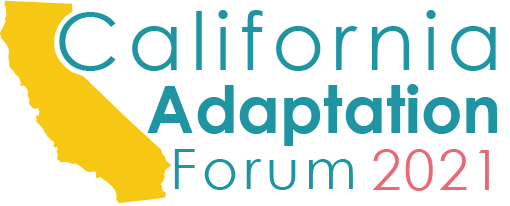CAF 2021: The Grand Adaptation Challenge
Join California’s adaptation movers, shakers, and leaders
The 2021 California Adaptation Forum (CAF), hosted by the Local Government Commission, in partnership with the Governor’s Office of Planning and Research, will be organized as a 5-month virtual series, from June to October 2021.
We have seen considerable progress in communities throughout California—deepening our understanding of climate risks and vulnerabilities, identifying effective adaptation strategies and pathways, and implementing real, on-the-ground projects to build community resilience.
However, with the impacts of climate change worsening, causing disproportionate harm to our most marginalized communities, adaptation progress must accelerate to meet the urgency of the crisis at hand. Through collaboration, creativity, and mutual support, we know that we can rise to this challenge.
We’re trying something new this year—in addition to informative and engaging presentations, we will be organizing a series of interactive workshops for each track to identify action-oriented solutions that address key challenges faced by California’s adaptation community.
With this series, we hope to bring together community leaders, practitioners, policymakers, researchers, and thought leaders to connect, collaborate, and determine our shared path forward to create a more resilient and equitable tomorrow. We hope you will join us!
Schedule
The 2021 California Adaptation Forum is being organized as a 5-month virtual series, taking place June – October. In addition to organizing informative webinars, CAF 2021 is designed to be highly interactive to engage participants through track-based workshops that aim to explore solutions to common adaptation challenges.
Tracks
The 2021 California Adaptation Forum will feature three cross-cutting tracks, each of which will feature a kickoff webinar, three interactive workshops, and a final outcomes webinar.
Register for The Grand Adaptation Challenge!
Join climate leaders from across the state for an engaging and newly imagined California Adaptation Forum, taking place virtually June-October 2021. This year, we’re combining keynotes, informative webinars, and interactive workshops to address key climate challenges faced by California’s communities and adaptation practitioners. We hope you can join us!
